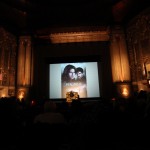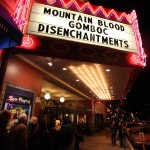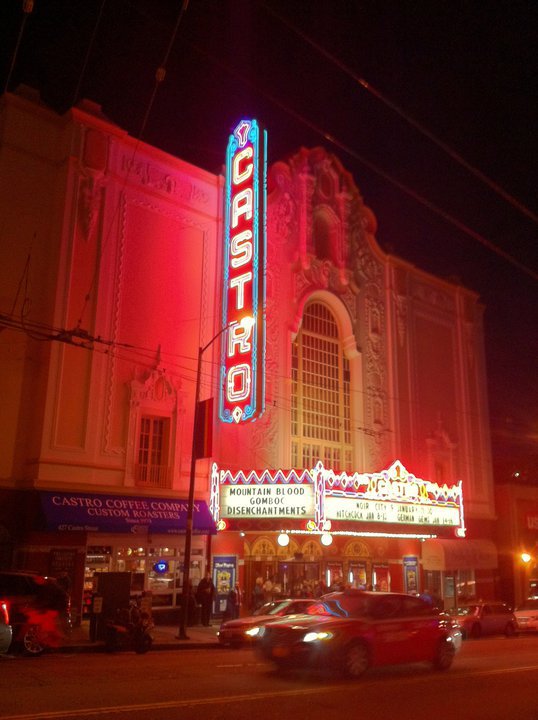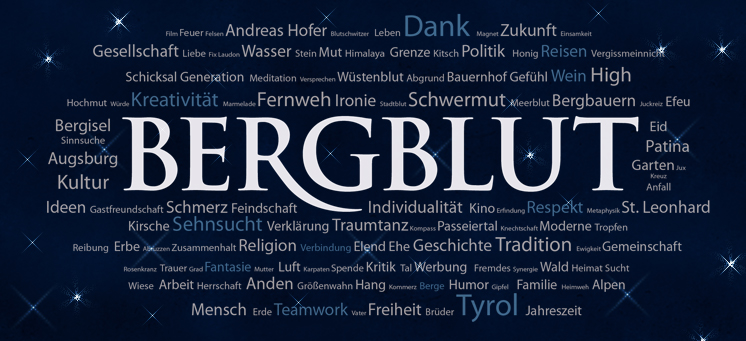Bergblut ist historisches Drama und Historienfilm in einem. Da er zudem in der Bergen Südtirols spielt reiht er sich sekundär auch in die Liste der Berg- und Heimat-Filme ein, die in unterschiedlichsten Ausprägungen seit dem frühen 20. Jahrhundert vorkommen. Ebenfalls kann er als „Kostümfilm“ oder „Familiendrama“ oder „Historisches Integrationsdrama“ gelten. Die Einordnung in Genres ist eine leidige Kategorisierung und für ein komplexes Kunstwerk wie einen Film, dessen ureigene Individualität ihn nun mal ausmacht, nicht immer anzuwenden.
Da die Kombination verschiedener Genres bei einem Artechcock-Kritiker regelrechte Entrüstung ausgelöst hatte, möchte ich mich zur filmgeschichtlich-historischen Einordnung der Teilgenres Bergfilm/Heimatfilm kurz äußern und dadurch helfen, solche Missverständnisse, Fehl- oder Falschinterpretationen zu vermeiden.
Der Bergfilm wurde in den 20er Jahren durch den Regisseur Dr. Arnold Fanck populär und ist seitdem auch mit Südtirol stark verbunden. Auch Leni Riefenstahl, die später ihr Talent den menschenverachtenden Nationalsozialisten zuteilwerden ließ, drehte in Südtirol Bergfilme. Im Nationalsozialismus pervertierte das Genre bei einigen Regisseuren durch die Blut-und-Boden-Ideologie zu sog. BluBo Filmen mit einer kriegstreibenden Überhebung der (eigenen) Rasse (Blut) zur Legitimation für eine Nation, sich auszudehnen und den Bestand des eigenen Volkes durch die Vernichtung anderer Völker und die Aneignung fremden Bodens zu garantieren.
Auch wenn die Bergheimat der Hauptdarsteller und das Herzblut unserer Heldin im Titel zusammen fließen, ist „Bergblut“ diesem pervertierten Sub-Genre natürlich nicht zuzurechnen. Der Film vermittelt vielmehr eine völkerverbindende, grenzübergreifende Botschaft, zeigt dass Krieg Opfer auf beiden Seiten mit sich bringt und ein Land fast zerstören kann. Natürlich zeigt der Film auch, dass die Ursachen für den Aufstand (der übrigens nicht nur in Tirol, sondern auch in Spanien und anderen Regionen Europas als Reaktion auf die unbedingten Expansionswillen Napoleons entstand) die beschnittene Freiheit der Tyroler war, die seit 1805 von Bayern und Frankreich ausgebeutet wurden. Nachdem „Bergblut“ nun als bayerisch-südtirolerische Co-Produktion 200 Jahre nach dem Aufstand dieses gemeinsame Geschichtskapitel aufgearbeitet hat, ist gemeinsame Zukunft durch gemeinsame Geschichte zeitaktuell umgesetzt worden.
Dies macht ein filmgeschichtliches Verdienst von „Bergblut“ aus. Es ist uns bei der Umsetzung gelungen, auch mit dem schwierigen Filmgeschichtlichen Kontext des Genres problembewusst und korrekt umzugehen, wie der amerikanische Filmkritiker und Deutschland-Experte Dr. Les K. Wright lobt:
„Diese Art von Geschichte zeigt, dass sich die deutschen Filmemacher im Schatten von Hitlers Erblast einer Herausforderung gestellt haben, die Regisseur Pamer großartig umgesetzt hat.“
Dr. Les K. Wright, CultureVulture
Die Preise auf dem Bergfilmfestival im italienischen Lessinia (Publikumspreis und Preis für den besten historischen Film), sowie die Teilnahme an Bergfilmfestivals in Deutschland und Frankreich zeigen, dass Bergblut in diesem Genre sehr erfolgreich Menschen begeistern kann. Als Bergfilm und Neuer Heimatfilm fließen in „Bergblut“ durch Kombination mit den Genres „Kostümfilm“, „Historisches Drama“ und „Familiendrama“ ein weiterer Fundus an für diese Genres gebräuchlichen Stilmittel (Bildgestaltung, Musik, Montage) ein, die aber nicht explizit dem „Bergfilm“ oder „Neuem Heimatfilm“ zuzuordnen sind. Für letztere spricht in erster Linie der Schauplatz-Mittelpunkt, der seinen Schwerpunkt auf die Lebensweise am Berg, den bäuerlichen Alltag und die Menschen einer Bergbauernfamilie legt.

















